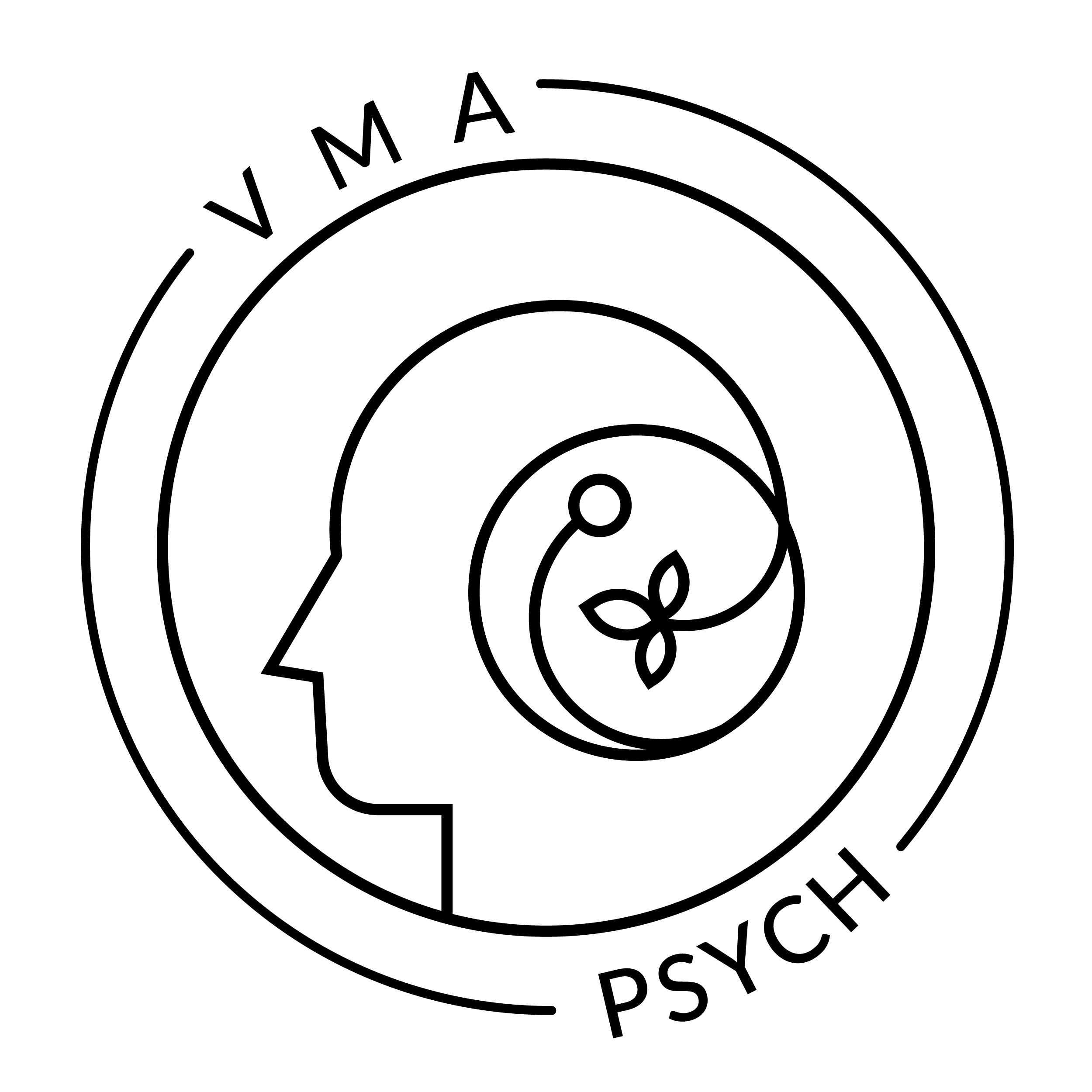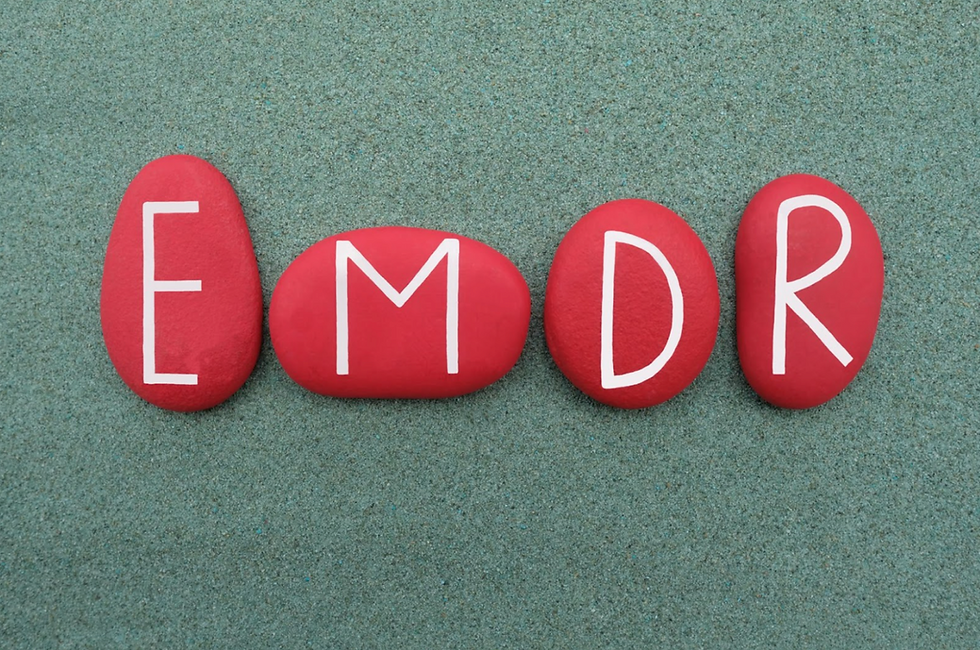Understanding the Signs, Symptoms, and When to Seek Help
In today’s fast-paced world, overwhelm, tension, and worry are increasingly common. Whether you're juggling work, school, family life, or personal challenges, it's normal to experience emotional pressure from time to time. But when does everyday stress cross the line into something more serious, like anxiety?
At VMA Psych, we often hear from clients who aren’t sure how to identify the difference between stress and anxiety. While the two experiences share overlapping symptoms, understanding what sets them apart is essential for getting the proper support.
In this article, we’ll explore the key distinctions between stress and anxiety, the unique symptoms of each, and how to know when it’s time to reach out for professional help.
What is Stress?
Stress is your body’s natural response to a perceived threat, pressure, or demand. It’s often situational and time-limited, triggered by external factors like a work deadline, an upcoming exam, or a major life change. While stress can feel uncomfortable, it can also be helpful in small doses—it motivates us to prepare, perform, and push through challenges.
Common Stress Triggers:
Workload or academic pressure
Relationship difficulties
Financial strain
Health concerns
Major life transitions (e.g. moving, new job, divorce)
Physical and Emotional Symptoms of Stress:
Muscle tension or headaches
Increased heart rate or rapid breathing
Trouble sleeping or fatigue
Irritability or mood swings
Trouble concentrating
Upset stomach or digestive issues
Stress symptoms usually resolve once the stressor is removed or managed. For example, once your project is submitted or the conflict is resolved, you may feel a sense of relief and return to baseline functioning.
What is Anxiety?

Anxiety, on the other hand, is a mental health condition that involves persistent and excessive worry, even when there’s no immediate stressor present. While external events may trigger it, anxiety tends to stick around and can become overwhelming, interfering with daily life.
Anxiety can manifest as Generalized Anxiety Disorder (GAD), Social Anxiety, Panic Disorder, or specific phobias. It often comes with both emotional distress and physical symptoms.
Common Anxiety Symptoms:
Persistent worry that feels difficult to control
Racing thoughts or intrusive fears
Avoidance of certain situations or activities
Restlessness or feeling “on edge”
Sleep disturbances
Physical symptoms like dizziness, nausea, or chest tightness
Unlike stress, anxiety doesn’t always have a clear cause and can occur even in seemingly safe or low-pressure environments. It often requires intervention, such as counselling, therapy, or lifestyle changes, to improve.
Key Differences Between Stress and Anxiety
Understanding the difference between stress and anxiety helps individuals recognize when they might need additional support. Here are a few key ways to tell them apart:
Stress | Anxiety |
Triggered by a specific situation or external pressure | Can occur without an identifiable cause |
Usually resolves when the stressor goes away | Persists beyond the removal of the stressor |
Can be motivating in small doses | Often overwhelming and debilitating |
Tied to temporary challenges (e.g., exams, deadlines) | May be chronic or part of an anxiety disorder |
More situational and reactive | More internal and anticipatory |
Responds well to practical problem-solving | May require professional mental health treatment |
If your feelings of overwhelm continue long after the situation is resolved—or if they start interfering with work, relationships, or daily functioning—it may be time to explore whether you’re dealing with anxiety rather than stress.
When Does Stress Turn Into Anxiety?
There’s no exact threshold, but if your symptoms become chronic, intense, or start to affect your quality of life, it could signal that your stress has evolved into an anxiety condition.
Ask yourself the following questions:
Do I feel constantly on edge, even when things are going well?
Are my worries interfering with sleep, school, or work?
Do I avoid certain situations because of fear or nervousness?
Is my stress affecting my physical health (e.g., headaches, digestive issues, chest pain)?
Have friends or family noticed a change in my behaviour or mood?
If you answered “yes” to several of these, you may be experiencing anxiety, and you’re not alone. According to the Canadian Mental Health Association, anxiety disorders are among the most common mental health issues in the country, impacting nearly 1 in 10 people.
Managing Stress vs. Treating Anxiety
Coping Strategies for Stress
Since stress is often situational, it tends to respond well to proactive coping tools and healthy lifestyle changes. Some strategies include:
Time management and organization
Physical activity and regular movement
Mindfulness meditation or breathing exercises
Healthy sleep hygiene
Social support from friends or loved ones
Limiting stimulants like caffeine or alcohol
At VMA Psych, our clinicians help clients identify specific stressors and develop customized, practical, and sustainable stress-management plans.
Support Options for Anxiety
When anxiety is chronic or intense, self-help tools may not be enough. Fortunately, anxiety is highly treatable through evidence-based approaches such as:
Cognitive Behavioural Therapy (CBT)
Mindfulness-based therapy
Exposure therapy for phobias or avoidance
Medication, when appropriate, prescribed by a medical professional
Lifestyle interventions, such as nutrition, sleep, and exercise
Psychoeducation about anxiety patterns and triggers
At VMA Psych, we offer individual counselling for anxiety as well as assessments and coaching services for those who may also experience co-occurring conditions like ADHD, depression, or trauma.
The Stress-Anxiety Connection
It’s important to note that stress and anxiety aren’t mutually exclusive. Chronic stress can increase your risk of developing anxiety. When the body stays in a prolonged state of fight-or-flight, it becomes harder to return to a calm baseline, leading to cycles of overthinking, insomnia, and eventually, anxiety-related disorders.
This is why early intervention and self-awareness are key. The sooner you recognize when you’re sliding from healthy stress into unhealthy anxiety, the easier it is to course-correct and regain control.
Supporting Teens and Young Adults

Young people are especially vulnerable to stress and anxiety, whether due to academic pressure, social media, family dynamics, or identity exploration. At VMA Psych, we offer dedicated services for teens and youth, including:
Counselling and therapy
Executive functioning support
Psychoeducational assessments
Group programming and skill-building sessions
Parent support and psychoeducation
If you’re a parent wondering whether your child is experiencing more than just “typical teen stress,” we’re here to help you navigate the next steps with care and expertise.
When to Reach Out for Help
It’s time to seek professional support if you or someone you care about is experiencing:
Persistent worry or panic
Avoidance of everyday tasks or responsibilities
Emotional numbness or emotional overwhelm
Social withdrawal or isolation
Sleep disturbances or chronic fatigue
Decreased performance at work, school, or home
Thoughts of self-harm or hopelessness
You don’t have to wait for a crisis to get help. Early support can make all the difference.
Final Thoughts
Stress is a part of life, but anxiety doesn’t have to be. By learning to recognize the difference between stress and anxiety, you can take proactive steps toward better mental health and emotional well-being. Whether you’re looking for practical stress-management strategies or need support in treating chronic anxiety, the team at VMA Psych is here to help.
Get Support with VMA Psych
At VMA Psych, we provide compassionate, evidence-based care to individuals across Ontario, both virtually and in person. Our clinicians offer therapy, assessments, and specialized services to help children, youth, and adults better manage stress, anxiety, and other mental health concerns.
Welcome to VMA Psych.
Your trusted provider of exceptional mental health services in the GTA & beyond. Learn More
With 40+ years as Toronto's leading psychologists, we guide individuals through life's complexities, offering specialized services for a brighter future.





















